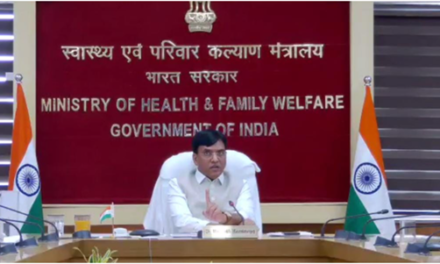On World Environment Day, experts have raised alarm bells over the escalating threat posed by rising temperatures on human health, particularly on cardiovascular well-being. This year’s theme, “Land restoration, desertification, and drought resilience,” underscores the critical intersection between environmental factors and public health.
Studies have highlighted a concerning trend: for every 1-degree Celsius rise in temperature, the risk of death from cardiovascular diseases surges. Data spanning from 2000 to 2019 revealed approximately 489,000 heat-related fatalities annually, with a significant portion occurring in Asia.
In India, recent figures from the Health Ministry reported 605 deaths attributed to cardiovascular issues in May alone, underlining the severity of the impact. The month also saw 80 fatalities linked to heat strokes, with a notable increase in confirmed cases from March to May.
Dr. RR Dutta, from Paras Health in Gurugram, explained, “During extreme heat, the body’s ability to regulate temperature can falter, placing added strain on the heart. This stress can precipitate severe complications including heart attacks and strokes.”
Vulnerable populations, such as the elderly and those with pre-existing conditions, bear a disproportionate burden. Factors like limited access to cooling facilities and socioeconomic constraints exacerbate their susceptibility to heat-related illnesses.
Addressing these challenges requires concerted efforts in building sustainable infrastructure and enhancing heat resilience. A recent study from the Indian Institute of Technology-Bhubaneswar highlighted that urbanization significantly contributes to rising temperatures in cities, compounding the risk for urban residents.
Hisham Mundol, Chief Advisor at Environmental Defense Fund, India, stressed the urgency of mitigating these effects through both emissions reduction and increased green cover. He noted, “Heat waves, exacerbated by climate change, pose a direct threat to public health, particularly in urban areas where the heat island effect intensifies temperatures.”
Dr. Dutta emphasized practical measures such as adequate hydration, minimizing outdoor activities during peak heat hours, and wearing light clothing to mitigate risks. These steps, coupled with broader environmental initiatives, are crucial in safeguarding communities against the escalating health impacts of climate change.
As global temperatures continue to rise, the imperative to protect vulnerable populations and foster sustainable practices remains paramount in mitigating the health risks posed by climate change.












